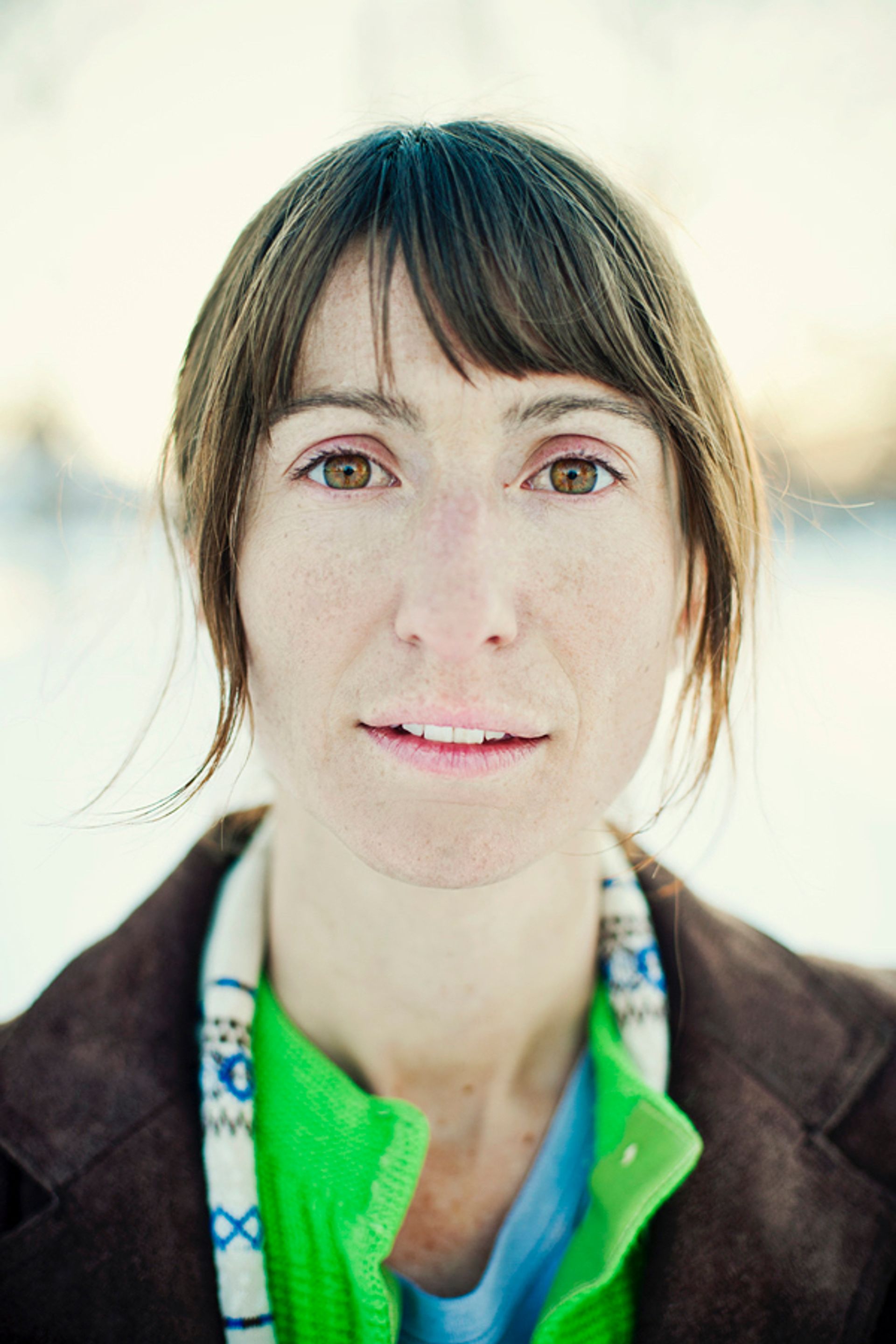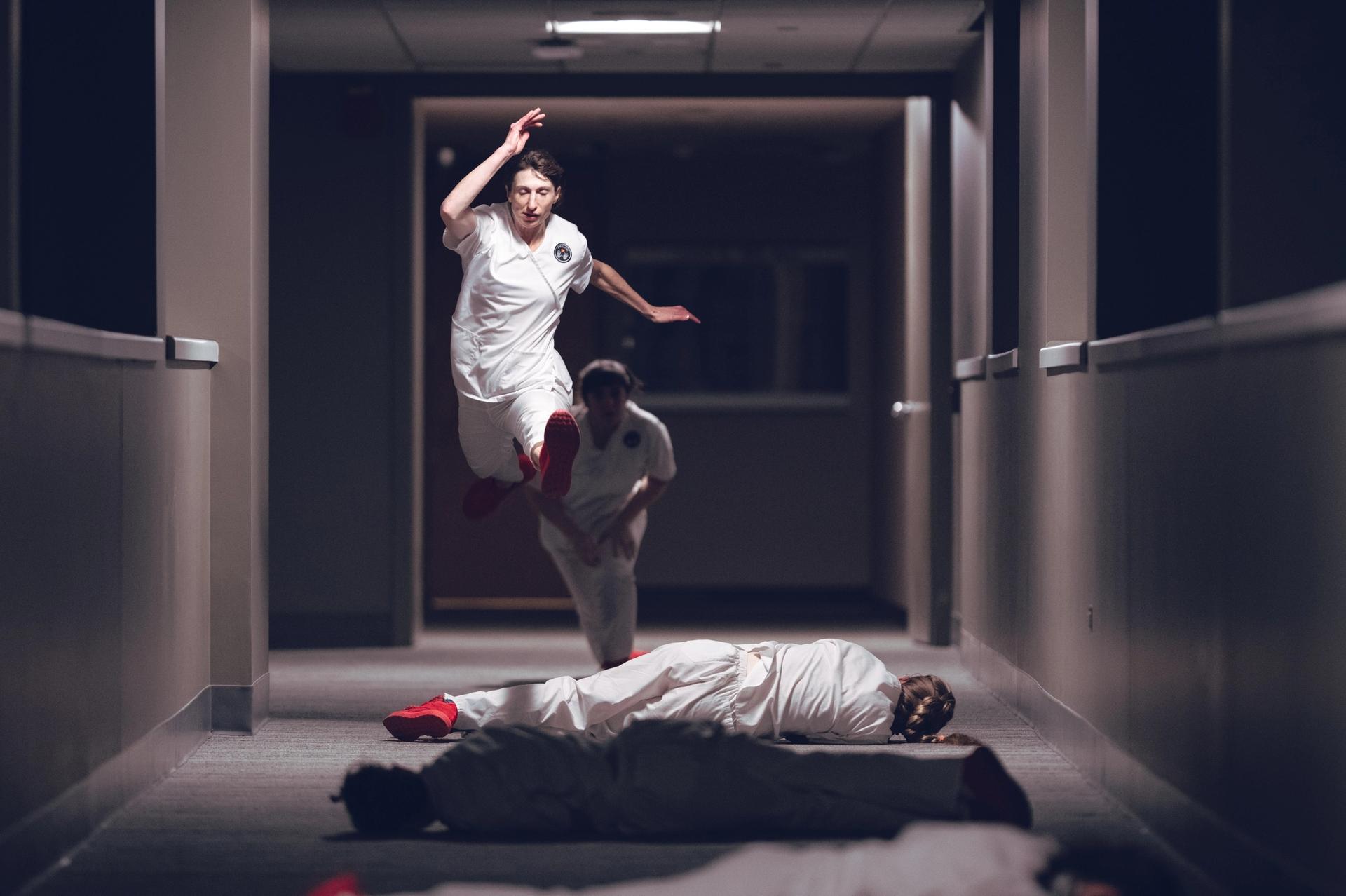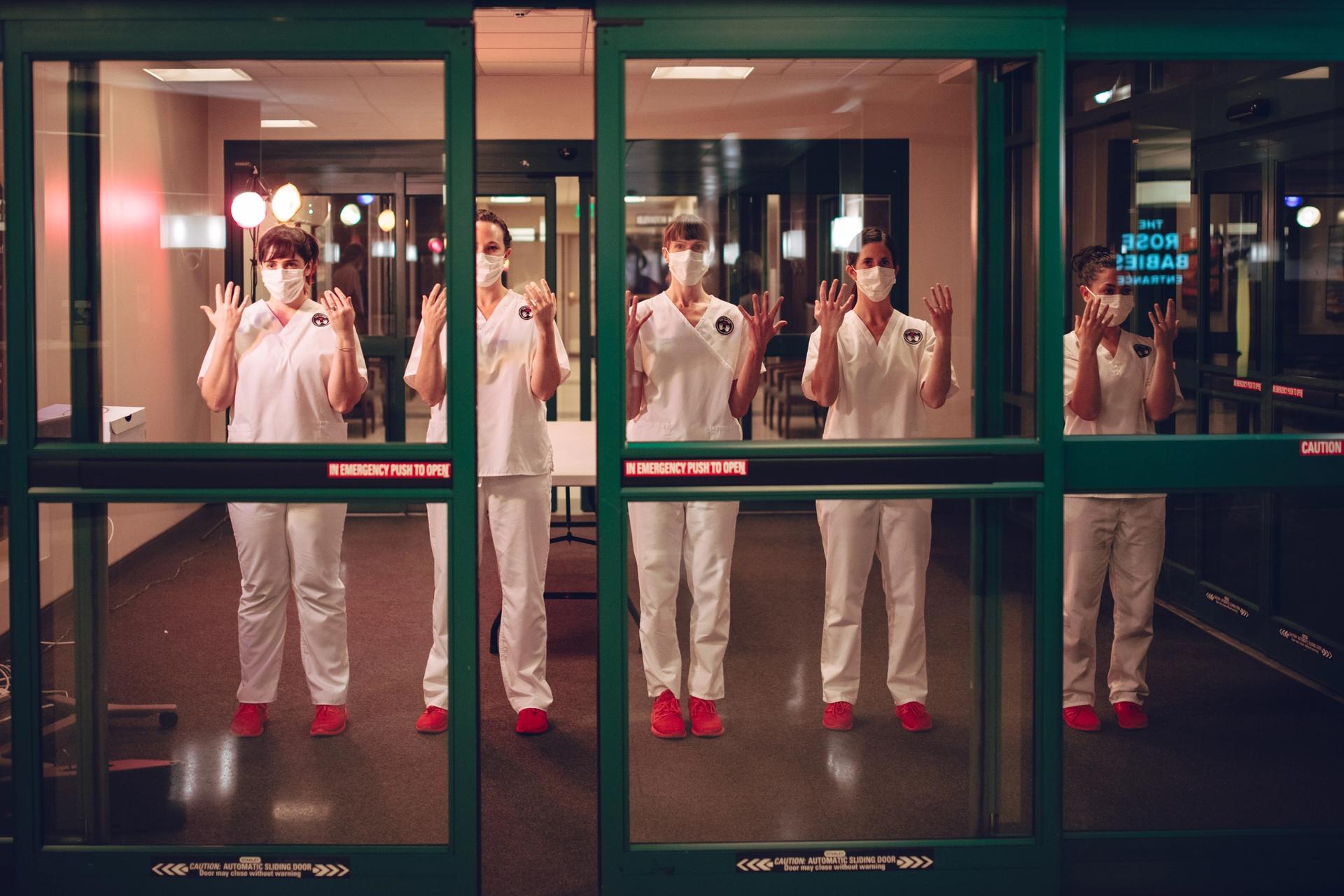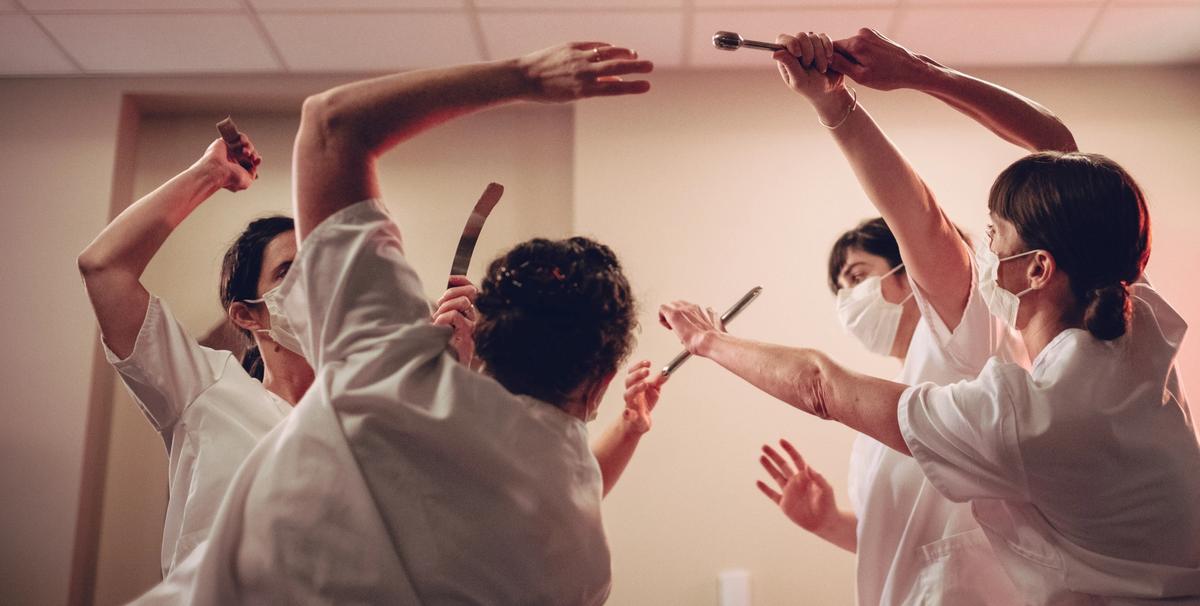The Colorado-based artist Tara Rynders was due to present her immersive dance performance, First, Do No Harm, at a New York City hospital this spring as part of her fellowship for socially engaged art with the non-profit organisation, A Blade of Grass. That is, until the coronavirus (Covid-19) pandemic saw the city’s medical centres transformed into near war zones.
As both a dancer and a Registered Nurse, Rynders is all too familiar with the physical exhaustion and emotional burnout healthcare workers are now facing as hundreds of new Covid-19 patients fill their wards, many of whom will never leave.
“Nurses, at times, feel like their best—at the end of the day—isn’t good enough,” Rynders says of the demands put on frontline workers in an already strained healthcare system that forces them to rush from one patient’s room to the next. She adds that the typical hospital setting is “really set up [for nurses] to fail; we’re not really capable of caring for patients in the way that they need to be cared for because we’re so busy because the hospital is a business—there’s a margin, they’re trying to see how many patients a nurse can safely take, but that doesn’t always allow for connected, authentic care and you cannot really follow a formula when caring for people with real needs”.

Tara Rynders. Photo by Todd Roeth
Spending every day caring for her sister, “it was then that I really made the correlation between dancing and nursing,” Rynders says, adding that she used to turn on her sister’s favourite song, Party in the USA by Miley Cyrus, and dance around the room. “It would make her laugh; even though she couldn’t speak, she could still laugh,” in itself a form of medicine, she says. Furthermore, the movement was a kind of energetic rehabilitation for Rynders after a long day.
Since then, her work has evolved into The Clinic, a performance programme that includes workshops for nurses, followed by the in-hospital production First, Do No Harm. First staged in 2018 with a cast of 16 dancers, artists and musicians, the performance piece explores themes of grief, loss, compassion fatigue and burnout from the perspective of nurses, patient’s family members and loved ones. Guests would be walked through the fully functioning hospital to various locations where they witnessed first-hand the complex and difficult emotional challenges that nurses endure on a daily basis.

Rynder's performs in First, Do No Harm. Photo by DW Burnett
Even as National Nurses Week (through 12 May) and nightly rounds of clapping around the world are being used to highlight the long hours healthcare workers are putting in throughout the current crisis, the artist the emotional weight of the work is unquantifiable. “Nobody is addressing nurses’ grief or how to care for nurses,” Rynders says.
For the artist, dance has always been a part of how she cares for herself. While she studied nursing at university, “[dancing] was something I refused to let go, for my own personal well-being and wellness I needed to move my body that way,” she explains. It was not until her sister fell ill while Rynders was working on her Master of Fine Arts degree, prompting her to pause her studies in order to look after her, that the artist realised how these two practices were connected by intimacy and exhaustion.
“I wanted to have people become more aware of what compassion fatigue and burnout is. Not only the general public, but also nurses and physicians themselves, and other healthcare workers, because there’s still a stigma around mental wellness in general,” Rynders says. “I wanted them to see from an outside perspective, looking at themselves through performance, what they’re going through.”

“Nurses, at times, feel like their best, at the end of the day, isn’t good enough," Rynders says. Photo by DW Burnett
As Covid-19 cases surge and hospitals are now overwhelmed with admissions, Rynders says healthcare workers likely do not have time to think about issues of wellness and resiliency for themselves. People who go into nursing are nurturing, caring people who want to make a difference in people’s lives. “Hopefully these hospitals already had something in place caring for their nurses, but overall most hospitals don’t. Education and self-care is in some ways a privilege. Just as we’re seeing in everything that’s been cancelled, even education, you realize [what] privilege [is] when your health needs are not being taken care of first.”
While her next performance remains on hold due to the pandemic, Rynder’s work proves prescient as dance has become a form of self-care for healthcare workers all over the world, evidenced in viral TikTok and Instagram videos of medical professionals participating in dance challenges to blow off steam during their demanding double and triple shifts.
Additionally, to further education around mental wellness for healthcare workers, Rynders has been appointed to a full-time position of Nurse Specialist: Resiliency, Innovation and Outcomes at Denver’s Rose Medical Center, where the artist is implementing therapeutic programs and advocacy for the specific mental health challenges nurses face based upon the strategies she’s honed through her dance workshops.
The hospital-wide incorporation of these practices will provide a significant case study, during and after this current health crisis, on how addressing the psychological and emotional needs of healthcare workers might relieve their trauma and grief and translate to better patient care and outcomes. The artist has also created a virtual version of the resiliency workshops for nurses that will be offered during the Reimagine End of Life Festival this June.
“While we know what healthcare workers need now in the form of recognition and material support,” Rynders says, “this [health crisis] will wreak fall-out for them emotionally and psychologically that we will also need to be prepared to provide.”
- This interview was edited and condensed based on transcripts provided by A Blade of Grass and is published in association with the organisation. For the full interview, please visit


